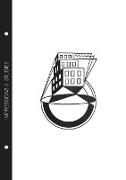- Start
- Iris Barry - Impressions & Studies
Iris Barry - Impressions & Studies
Angebote / Angebote:
Iris Barry - Impressions & Studies
Public Domain Poets #8
Containing almost all of Iris Barry's published poetry from the 1910s and 20s, never before anthologised. New edition designed, edited, and selected by Dick Whyte.
At night my mother sits uncorseted
And with tired gestures combs her long hair.
Her head shines in the gaslight,
And she yawns, dropping many hair-pins
As she goes upstairs.
Iris Barry (1895-1969) was born in Birmingham, England, and studied at the Ursulines convent in Belgium. She moved to London in 1916, began writing and publishing 'free verse', connected with Imagist poets like H.D. and Amy Lowell, and studied for a time with Ezra Pound. Barry's work, like that of the Imagists, tended to focus on compressed forms, and more fragmented, imagistic language.
At night
Neither joy, ambition, love nor want
In my heart.
But the leaves called
And the earth called,
And there was only waiting
Against the coming of rain,
And the whipping of hair
About my head.
Barry regularly published poetry between 1916 and 1924, wrote a novel, Splashing into Society, in 1923, and started film criticism for The Spectator and The Daily Mail, around the same time. After 1925 Barry stopped writing poetry, and focussed solely on film criticism. She would go on to co-found the Film Society of London with Ivor Montagu in 1925, and write one of the early classics of English-language film theory, Let's Go To The Movies, in 1926, becoming one of the most widely read film critics of the 1920s. Barry moved to America in 1930, and founded the film department at the newly opened Museum of Modern Art in New York, and worked as a book reviewer for the New York Times.
Through the day, meekly,
I am my mother's child.
Through the night riotously
I ride great horses . . .
Public Domain Press is dedicated to producing contemporary editions of out-of-print poets and poetry collections, particularly with regard to compressed and fragmented "free" verse from the late-1800s and early-1900s. All poems start as facsimiles - to preserve the original fonts - which are then cleaned up, edited for consistency, and spaciously laid-out, adorned with borders, illustrations, and ornaments from the books and magazines they originally appeared in. These are not "reprints" of previously existing books, but newly crafted collection, lovingly edited from public domain material, for the serious poetry lover.
Folgt in ca. 10 Arbeitstagen
